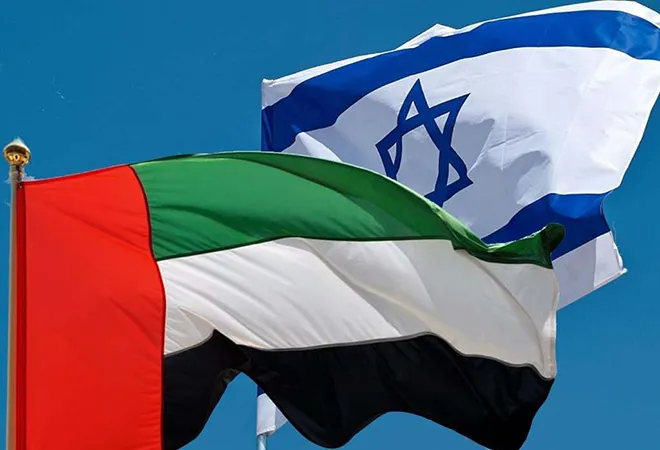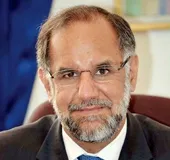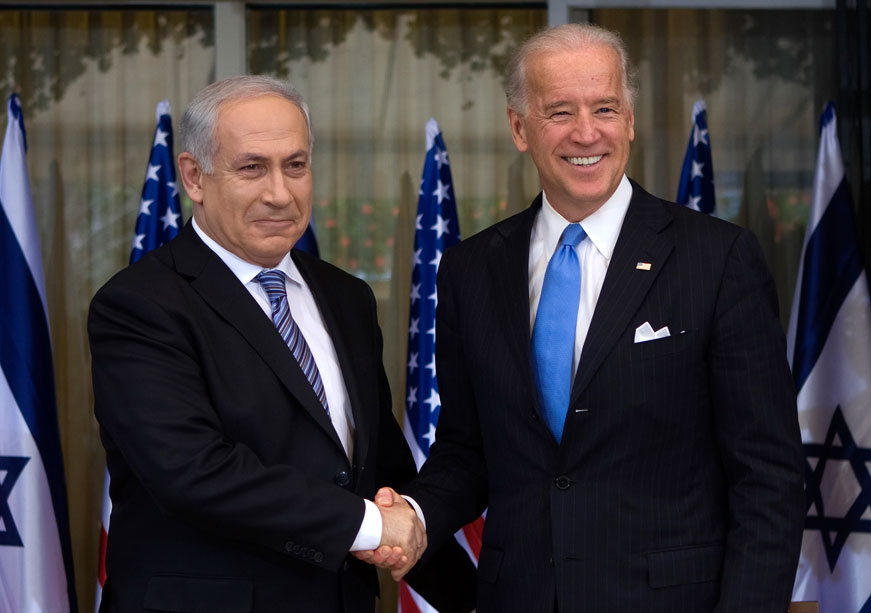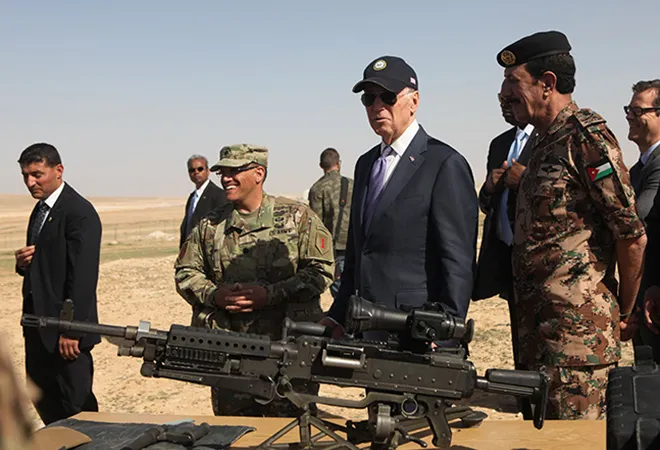The bilateral relationship between Israel and UAE has moved ahead with surprising speed post the Abraham Accords
The signing of the Abraham Accords between UAE, Bahrain, and Israel in August 2020 opened up new possibilities for Israel to establish diplomatic ties with two key states in the Gulf. Morocco and Sudan followed soon, and as relations thawed with Saudi Arabia, it was clear that several Arab states were now willing to accept the political legitimacy of Israel. The case of UAE, however, is special. Even though Israel was granted formal permission to open a diplomatic office in Abu Dhabi in 2015, its work was limited to facilitating Israel’s participation in the International Renewable Energy Agency. However, the efforts of the Trump Administration and recognition of the advantages of a mutually beneficial partnership led the two countries to establish full diplomatic ties. In a little over two years, UAE and Israel have demonstrated the political will to move forward with a speed and intent that has surprised many observers of the region.
UAE responded by reiterating its continued support for the Palestinian cause and their ambassador to the US, Yousef Al Otaiba, affirmed UAE’s advocacy for a two-state solution.
The Abraham Accords, predictably, drew a strong denunciation from the Palestinians and the Palestine Authority issued a tough statement calling the accords, “a tripartite aggression against the rights of the Palestinian people.” UAE responded by reiterating its continued support for the Palestinian cause and their ambassador to the US, Yousef Al Otaiba, affirmed UAE’s advocacy for a two-state solution. He argued that UAE would now pursue this objective with greater conviction by directly engaging with Israel through stronger incentives, policy options, and diplomatic tools. The Israeli side responded positively by agreeing to suspend declaration of sovereignty over certain areas in the West Bank and to co-operate with all the parties involved in trying to resolve the conflict.
Israel and the Arab states
UAE, of course, isn’t the first Arab country to establish diplomatic ties with Israel. In 1979, Egypt normalised its ties with Israel by signing the Egypt-Israel Peace Treaty at Camp David. But even after four decades, their bilateral trade amounted to a mere US $330 million in 2021 and this too was primarily driven by government channels. Until recently, high-level official exchanges were also rare, though the one by former Israeli Prime Minister Naftali Bennett in 2021 and subsequent visits by business and security delegations show an attempt to bolster an engagement, which was formerly largely limited to coordination between the security establishments each time a conflict broke out between Israel and Hamas in the Gaza strip. Egyptian import of almost 700 cubic feet a day of Israeli natural gas via the EMG and AGP pipelines has also given a new energy dimension to the relationship. However, cultural ties have been slow to take off, due to open hostility from several prominent Egyptian intellectuals and from the general public.
Egyptian import of almost 700 cubic feet a day of Israeli natural gas via the EMG and AGP pipelines has also given a new energy dimension to the relationship.
A similar pattern can be also observed with respect to Jordan. Although the two countries signed the Israel-Jordan Treaty of Peace in 1994, their relationship has not really progressed. Israeli exports to Jordan and vice-versa have been negligible—about 0.5 percent and 1.5 percent of their total exports, respectively. Jordan’s fears of Israeli annexation of bordering areas in the Jordan Valley and the Dead Sea region, the presence of a large Palestinian population, the public furore over frequent skirmishes between Israeli forces and Arab worshipers in Al Aqsa mosque/the Temple Mount, and public condemnation of Israel’s assault in Palestinian territories are some of the key hurdles.
Israel-UAE partnership
In contrast to Egypt and Jordan, the establishment of full diplomatic ties between UAE and Israel has led to a rapid blossoming of bilateral relations through high level visits, trade, investment and technology tie-ups and even the emergence of a cultural connect. Trade relations Within a year of the Abraham Accords, bilateral trade between the two countries reached US $900 million, and in the first quarter of 2022 it has already touched US $1.5 billion. The two countries also signed a Free Trade Agreement in June 2022 with a stated target of increasing annual trade to about US $10 billion over the next five years. In addition to trade, UAE views Israel as a market of strategic importance for its business and investment growth. Keeping this in mind, in September 2020, the two countries signed their first protocol in banking and finances to encourage joint investments. The Dubai International Chamber also signed an agreement to open its office in Tel Aviv to enable Emirati and Israeli companies to invest in each other’s markets and about 1000 Israeli business enterprises already operate in the UAE. In March 2021, UAE announced a US $10 billion fund for investments in Israel and by September 2021, the two countries had already signed about 22 MoUs in areas ranging from healthcare, water security, clean energy, agri-tech to space, retail, culture, sports, amongst others. Subsequently, one of the biggest commercial energy deals took place when Abu Dhabi’s Mubadala Petroleum bought a 22 percent stake for US $1.1 billion in Israel’s offshore Tamar natural gas fields. In the water sector as well, the two nations have established a joint water research institute in UAE and have also initiated pilot projects in key cities.
Delegation visits
The easing of COVID-19 linked restrictions has seen a steady increase in the number of business and official delegation visits. In September 2022, a delegation from UAE participated in a joint business forum co-organised by the Tel Aviv Stock Exchange and the Abu Dhabi Global Market, which led to the signing of three agreements focussing on data protection, innovation and fintech initiatives. In December 2020, a large Israeli delegation participated in Gitex Technology Week (the biggest innovation exhibition in the Gulf) and also inaugurated the Israel Future Digital Economy Summit to enhance cooperation in the fields of innovation and technology. Another delegation including army and intelligence officials and CEOs of major Israeli cyber firms attended the Cybertech Global conference as speakers in Dubai in 2021. Israel also had a major presence at the Dubai Expo through its pavilion.
One of the biggest commercial energy deals took place when Abu Dhabi’s Mubadala Petroleum bought a 22 percent stake for US $1.1 billion in Israel’s offshore Tamar natural gas fields.
On the official side, there have been as many as 20 ministerial visits from Israel to the UAE. The first prominent one was by the Israeli president, Issac Herzog, which involved discussions on security and bilateral relations. Thereafter, former Foreign Minister Yair Lapid made a visit in 2021 for the inauguration of the embassy in Abu Dhabi and the consulate in Dubai. The latest visit was by former Prime Minister Naftali Bennett in June 2022 to sustain the momentum in ties. From the UAE side, delegation visits have been supplemented by Foreign Minister Sheikh Abdullah bin Zayed Al Nahyan’s week-long visit to Israel to mark the second anniversary of the Abraham Accords. Cultural ties The warmth in relations is also reflected in a growing cultural and people-to-people connect. Increased connectivity through 70 direct flights every week has facilitated smooth movement of tourists, business people, and students. It is estimated that about 450,000 Israeli tourists visited UAE since the Accords. Moreover, in October 2020, the two countries signed an agreement allowing their citizens to travel visa-free (for leisure and business purposes), making UAE the first Arab state to be granted such a waiver. On the religious front, the opening of the Abrahamic Family House comprising a synagogue, a church, and a mosque in the same complex signifies the Arab kingdom’s tolerance policy towards its new Jewish partner. The laying of a wreath by Sheikh Abdullah at Israel’s National Holocaust Memorial was another example of the openness with which UAE has embraced Israel. Other signs include grocery shops selling kosher food and the establishment of the Jewish Community Center of UAE and the Emirates Agency for Kosher Certification. The first Israeli cultural institute, Educational Hebrew Institute (EHI),was also opened in January 2021 to deepen the cultural connect.
An emerging India-UAE-Israel trilateral
From India’s perspective, the Accords have given rise to new opportunities from which it stands to gain. Recently, the Indian Ambassador to Israel also remarked that “Israel’s strengths in niche technology; India’s huge economy and human resource base; and UAE’s capabilities in logistics and investments have complementary benefits not only for the three economies but also the region at large.”
On the religious front, the opening of the Abrahamic Family House comprising a synagogue, a church, and a mosque in the same complex signifies the Arab kingdom’s tolerance policy towards its new Jewish partner.
Last year, the three countries signed their first trilateral pact wherein an Israeli firm, Eccoppia, will be producing robotic solar cleaning technology in India for a landmark project in UAE. In order to explore more opportunities, Dubai-based Indian Business and Professional Council hosted a large Israeli delegation earlier this year; and in September 2022, a CII business delegation from India and UAE interacted with members of the Israel Asia Chamber of Commerce at Tel Aviv to discuss collaborations in food security, manufacturing, cybersecurity, healthcare, and fintech. Going forward, Israeli officials estimate that given the boost in the trilateral relationship, the trade between the three countries has the potential to reach US $110 billion by 2030.
Conclusion
The signing of the Abraham Accords two years ago has brought about an Israeli-Emirati partnership that has flourished at a remarkable pace. From exploring trade and investment opportunities to engaging in people-to-people exchanges, the two countries have embarked upon a new and dynamic era of cooperation. Looking ahead, the two nations could leverage this progress by expanding the partnership to like-minded countries such as India, the US, Japan, South Korea and Singapore through minilateral groupings such as the I2U2 initiative and the Negev forum.











